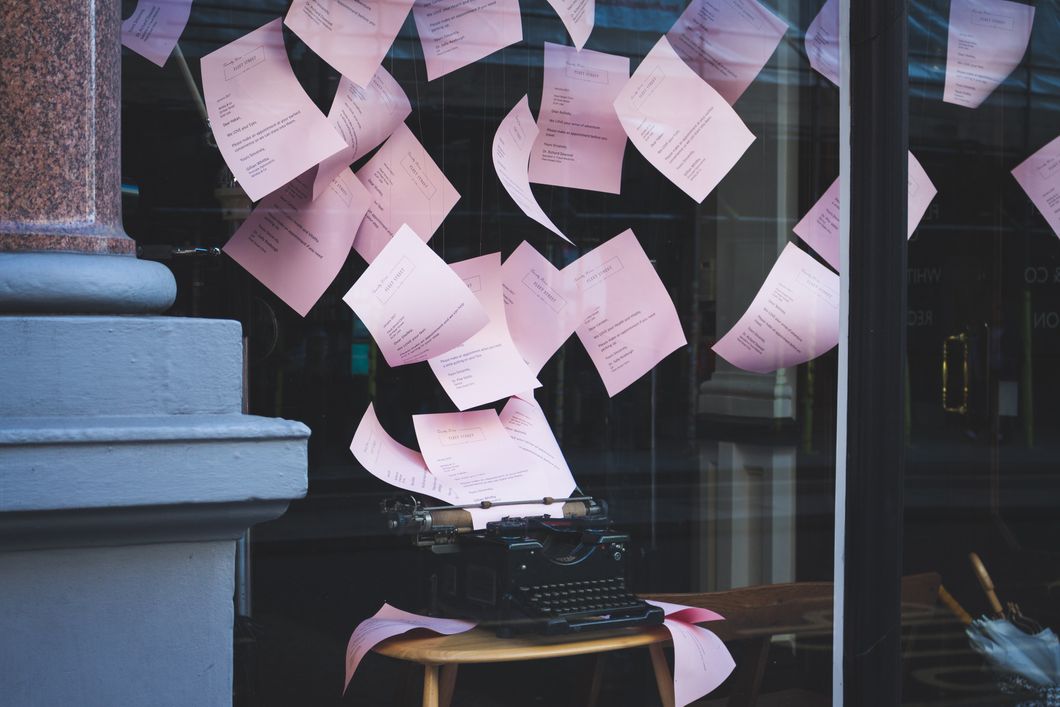It's that time of the semester again. The halfway point that gets college students super stressed when it's not even finals yet. That's right, I'm talking about midterms.
Midterms, depending on your major, can be standardized tests or papers. No matter what your midterm is, it is a daunting task to cope in a time of such stress.
As a former English major and a first-year grad student in a creative writing program, I am familiar with the midterm paper. A junior in undergrad I know quite well inspired this article. The advice I gave her should be advice all undergrads hear so they can stop worrying about what to do when the midterm paper time arrives.
There are so many ways to tackle paper writing. To get the best grade, undergraduates should consider using these surefire techniques:
1. Give yourself sufficient time to write your paper.
Sufficient time = at least two weeks before the paper is due. The best plan is to begin writing any major papers as soon as you get the syllabus and continue working on the paper throughout the semester, or at least until the deadline.
2. Begin by writing down all your possible ideas about the prompt.
Just getting the prompt may spark some inspiration in you. Most of those ideas won't make it to the typed page, but it's a start.
3. Generate a list of questions the reader might have about your topic.
One of the biggest things I did wrong with my academic essays and research papers was write from my own perspective. The point is to address an issue by answering the reader's questions about that issue. The reader will not learn anything if you just record your research or list observations. You need to clearly explain what you're trying to say. Don't make the reader try too hard.
4. Find your sources & take notes on paper.
Taking notes will make doing parenthetical citations so much easier because you will know which page the quote is being taken from. Using paper will cause you to slow down and be more aware of all your choices.
5. Create an outline on paper.
This is your plan of attack. This is where you can organize your paper and answer the reader's biggest questions about your topic.
6. Reread your sources.
A second read will help you gather new information you may have missed during the first read. For longer sources, use the table of contents and skim for important information.
7. You can be inspired by the work of others and borrow their ideas without plagiarizing their work.
Certain ideas authors put in their work can lead to the development of your own thesis. You can write an entire paper around an idea another author has used to support their argument. Never use another person's work verbatim without citing your sources.
8. You can use the sources cited in the source you are reading.
The sources cited at the bottom of your source could possibly have valuable information you could use in your paper, maybe even more than the original source in which you have found the sources they used.
9. The first draft is for content.
The first draft will always be bad. It should be to get your content and your central focus on the page.
10. Have someone else look at it.
Getting feedback is key. The person editing for you will pick up on clear errors and be able to suggest ways to improve the paper.
11. Revise for clarity and coherence.
The paper should start to become clear and have a good logical flow upon the writing of your second draft.
12. You can change your thesis between drafts.
You could always change your mind about what you will write about, so your thesis could change too. That's okay. Allow yourself to experiment with it.
13. It's OK not to know your thesis until the end of your paper.
Theses can be changed at the end of a draft to better suit the argument, especially if you didn't realize the direction of your paper until you finished.
14. Revise the paper as much as you can until it feels right.
Revision is hard but necessary. Do it as many times until the paper sounds less like you're speaking to yourself in your mind and more you being in the mind of your reader.
15. Give yourself days off until the paper deadline.
You need to have time for yourself to just have fun and not think about your paper so when you have to sit down and write, you can focus all your energy on writing it. Your mind will be more attentive if you diversify your activities.
















